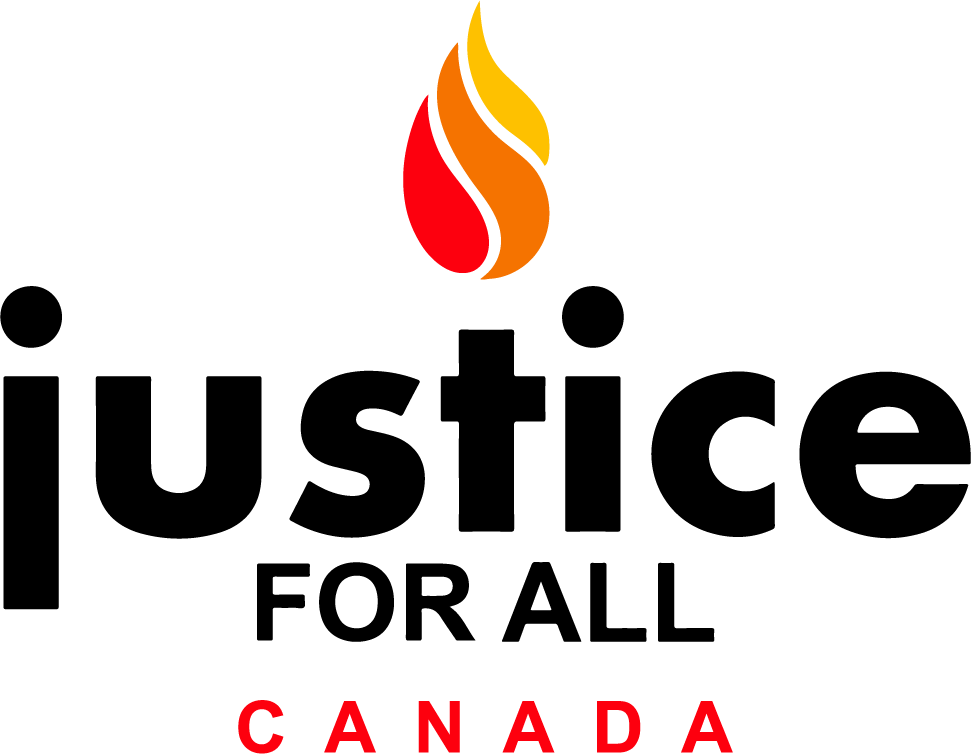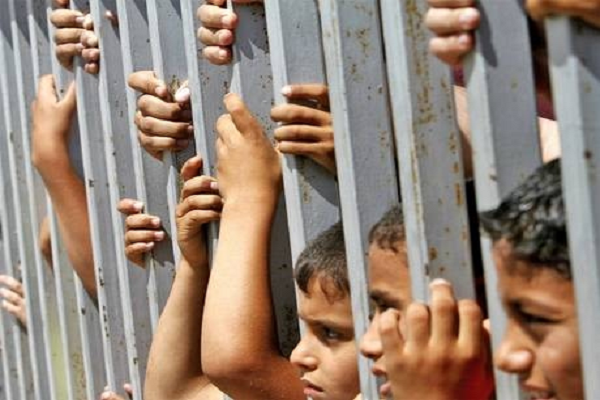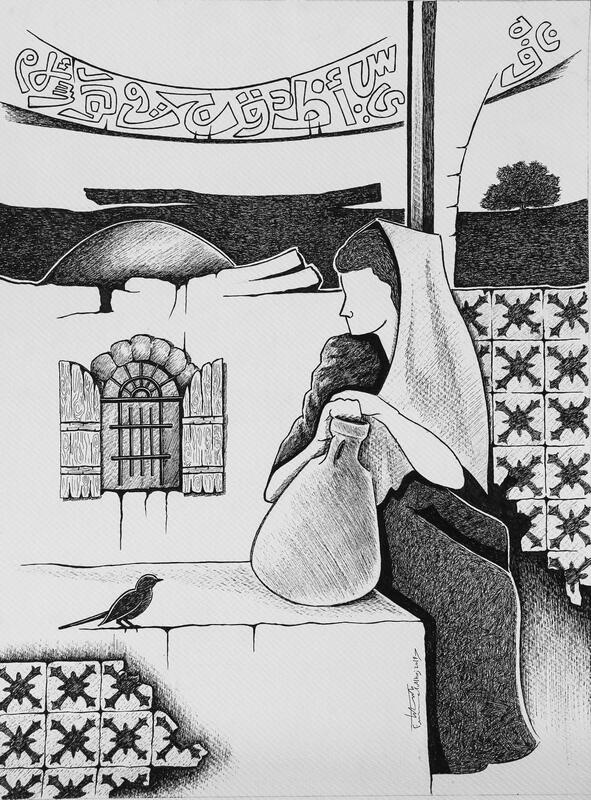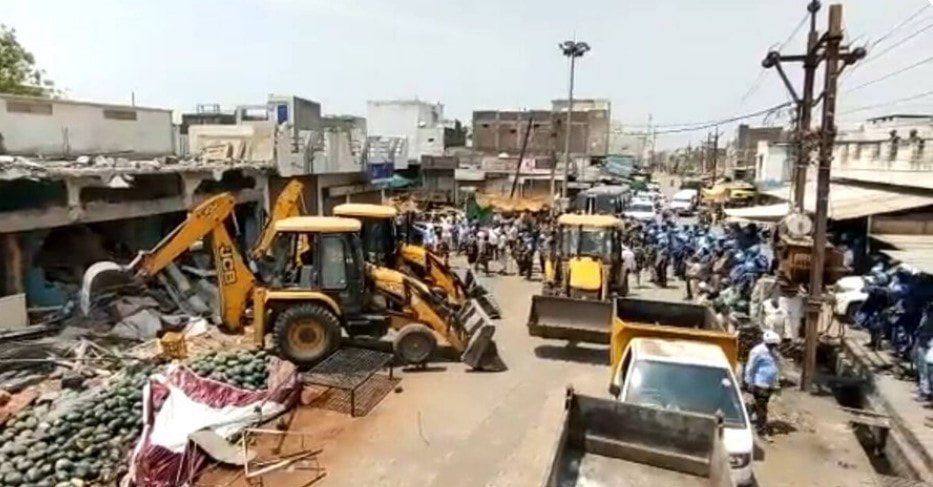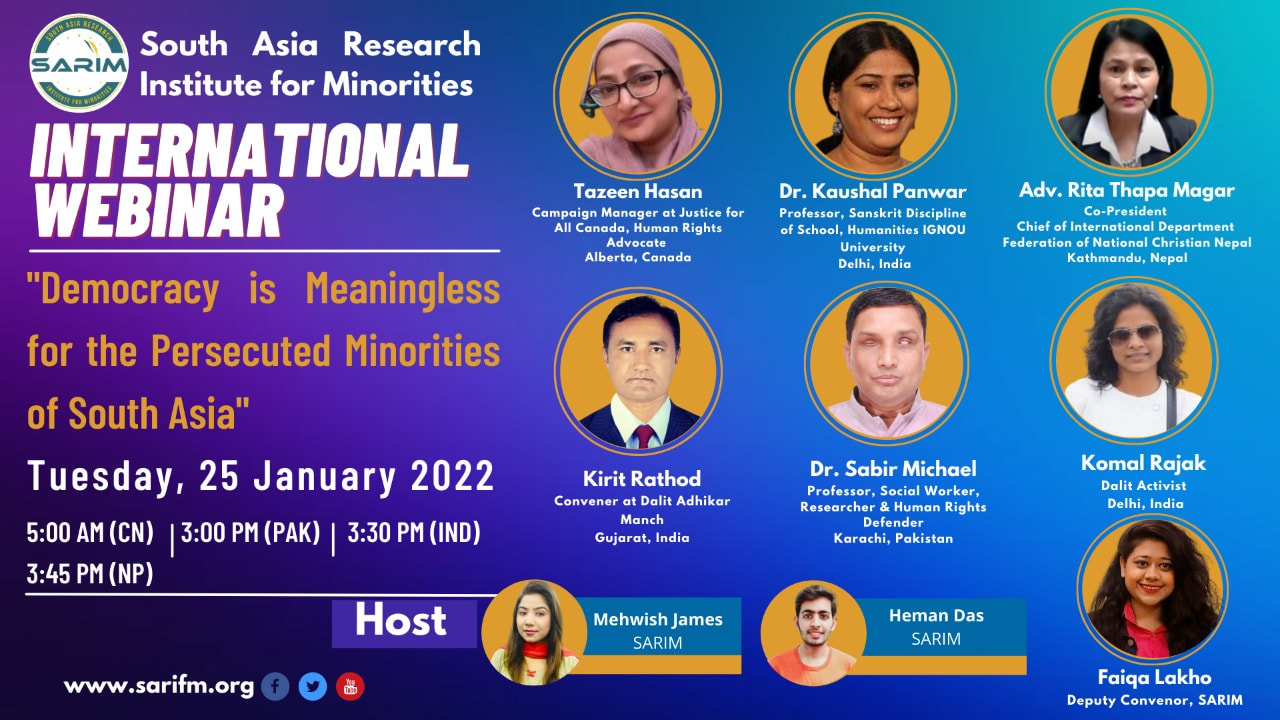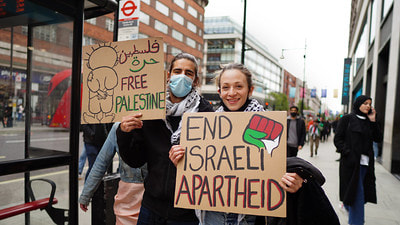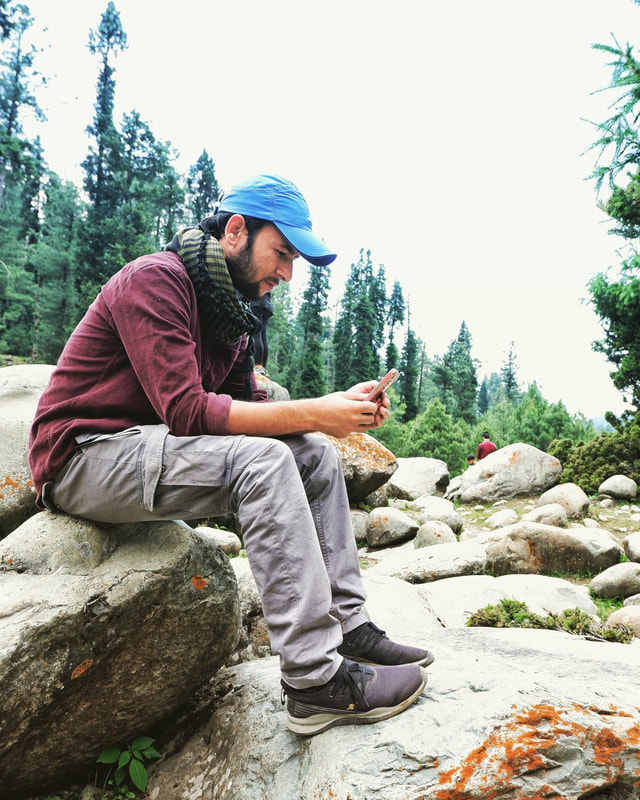|
The saga of a Palestinian child who was shot, arrested without warrant, and denied medical treatment until he was forced to falsely confess throwing two stones at the soldiers. He was tortured, sleep deprived, bound by a plastic cable, blindfolded, and intimidated by a gun during interrogation.
I am a Palestinian child. I was arrested at the end of a school day. I was arrested without a warrant. I was blindfolded, sleep deprived, and my hands were tied. I was denied legal aid. I was denied medical aid. I was tortured during interrogation. When I was only 15. I was arrested because I was just in the wrong place, At the wrong time. There were clashes at the school gate. I tried to walk through the clashes quickly. But I was shot in my right leg by an Israeli soldier. While I collapsed to the ground bleeding, the soldiers came and started beating me. Paramedics tried to reach me to take me to the hospital in an ambulance, but the soldiers wouldn't let them. I was taken to the interrogation centre instead of the hospital. Soldiers wrapped a bandage around my leg. Then they blindfolded me, tied my hand with a plastic cable, And took me to a second interrogation centre. I was confused. I asked to talk to my parents, and to have legal advice as I knew my rights. My interrogators refused. My interrogators keep shouting at me. They placed a gun on the table, In front of me, to intimidate me. They said bad, bad words. I don't want to think about those words. When I refused to confess, they stopped interrogation, they took me to a detention cell, They made me take off all my clothes, in the freezing cold of December. And chained me to a metal chair by my wrist and ankles. The next day, they interrogated me again. My wounds were hurting. I kept telling them I needed medical treatment. They asked me to show them my injury. I showed them my bullet wounds, They pressed the wound, And said they wouldn't stop until I confess. It was the worst pain I ever felt. I realized my suffering would end until I confess, I finally decided to confess, I said that I threw two stones. It was then that I got medical treatment. Two days after I was shot. It still hurts to this day, two years later. After this forced confession, I was sentenced to seven months in prison. An ugly, ugly place. I don't like to think about it. They would set off an alarm at midnight, at 3 am and 6 am, so we could never sleep for long. If we do not wake up to these alarms, We will be beaten. I was beaten with wooden sticks a few times. I still have back pain now because of a bad beating. I was not allowed education during detention. All I want is peace and the future. I was released after seven months, but the physical and psychological scars remain. No child should be arrested without warrant, No child should be subjected to torture, No child should be denied his or her fundamental rights. No child should be denied crucial medical treatment, No child should be forced to confess, No child should be denied legal aid during interrogation. No child should be arrested at the end of a school day. I was arrested at the end of a school day. When I was 15. Story is based on the real life events of a Palestinain child. The ex-detainee child was interviewed by Save the Children, UK. The real life story was published in their report titled Defenceless: The Impact of Detention on Palestinian Children. The child’s name was changed to protect him and his family from further aggression. Written by a Canadian activist. I was a 17-year-old minor when Israeli forces entered my house, blindfolded, physically assaulted, and arrested me.
It began like most night arrests. Israeli soldiers entered my house at 2 AM. They bounded, blindfolded, and physically assaulted me. They searched my house and arrested me without any warrant. I was not informed of the reason for my arrest. My name is Laith. I was a 17-year-old minor when this happened. I live in Ramallah on the West Bank of the land called Palestine. Over the next 11 hours, I was transferred to multiple locations and interrogated about throwing stones at Israeli soldiers. Throwing stones is a security offence under Israeli military law. I was presented to multiple courts but they never charged me for any crime. They released me after 46 weeks of detention. BUT I missed my final year of high school. I was never told why I was being arrested. I have never presented a warrant. I also want to tell you that I am not the only minor who was illegally imprisoned or more correctly kidnapped by the Israeli military. 10,000 Palestinian minors have been arrested and held in the Israeli military detention system since 2000. In the month of April only, Israeli forces arrested 1,228 Palestinians in April, including 156 minors and 11 women, and Palestinian prisoners’ support organizations. We are tortured and humiliated in Israeli prisons. We are bullied to get confessions. Denied water when we are thirsty. Denied enough food. Denied medicines. Denied education. Denied free and fair trial. We are denied our basic rights. I want to tell you that we are separated from my parents, tortured, harassed, denied education, and denied the right to a fair trial. Every year, Israel prosecutes between 500 and 700 Palestinian children in military courts. And the world is silent. And western countries like Canada which support Israel financially and morally have a critical role in our persecution. This story has been reconstructed in first-person narrative from mainstream Palestinian media and human rights reports. Written by Tazeen Hasan. By Shaikh Tabinda
April 13th, 2022 India is known as the "land of festivals" because of its many celebrations, and the country's culture is reflected in this. Because of the richness and diversity of our country's history and culture, many of our major festivals are an expression of this. Sadly, this is not the case in reality. As a result of internal strife, India has become a more hostile place to live in recent years. India is currently experiencing a double festival season, with both festivals occurring simultaneously. In contrast to Muslims, who fast and pray in mosques during the holy month of Ramadan, Hindus celebrate Navratri and Ram Navami, which both occur during this month of religious festivals. But when Ram Navami processions take place across India, it appears that Hindu nationalist groups are less interested in celebrating their festival than in stirring up bigotry. Hindutva* groups made a concerted effort to incite racial animosity during Ram Navami processions in several Indian states, including Gujarat, Karnataka, Madhya Pradesh, Uttar Pradesh, Bihar, Goa, Uttarakhand, and Delhi. Attacks on Muslims have been reported in a number of locations throughout India. Mosques are being burned down. Property is being harmed. Stones are being hurled in the direction of the target. There was an uncanny similarity in the pattern of commemorations in all states: A large procession was organized and instructed to travel through Muslim-dominated areas. The routes were deliberately designed to pass through Muslim locales. Provocative, anti-Muslim songs were blasted using loudspeakers. Hindu men were seen causing a commotion by dancing with swords and guns to the music in front of the mosques. Slogans were chanted: JO RAM KA NAAM NA LE USKO BHARAT SE BHAGANA HAI. Those who does not take the name of Ram will be thrown out of the country. Song lyrics included: Pakistan mein bhejo ya qatleaam kar dalo, aasteen ke saanpon ko na dudh pilakar palo. (Send them to Pakistan or kill them, don't feed the sleeve snakes with milk) Jis din jaag utha Hindutva, toh anjam bolega, topi wala bhi sar jhuka ke, jai shree Ram bolega. (The day Hindutva awakes, the end result will speak. The man in the cap will also say Jai Shree Ram with a bowed head.) Jiss din khoon khola mera, dikha denge aukat teri. Fir toh hum nahi bolenge, bas bolegi Talwar meri.” I'll show you your position the day my blood boils. Then neither of us will speak; only my sword will. Violence In Gujrat Adding to anti-Muslim feelings on the occasion of Ram Navami, communal clashes were reported in two Gujarati cities, Khambhat and Himmatnagar, in which one person was killed, and another was injured. On social media, a video showed Hindutva gangs in Chappi village with saffron flags held high in their hands, dancing and playing loud music in front of Aqsa Mosque. Minara Masjid Bardoli, located in Surat, was another location where a similar event occurred. In front of the mosque, the same Hindutva goons were seen dancing and singing. Even the Dargah in Himmat Nagar was set on fire, and Sanghi goons were seen with swords in their hands, defiling mosques and destroying Muslim holy sites. Songs lyrics included: Kisi bhi ulla mulla ka zor yaha nahi chalta hai (The force of any ulla mullah does not work here) Teri masjid aur mazaro se Vande Matram gunjega. (Vande Mataram will resonate from your Masjid and Mazar) Violence in Madhya Pradesh The situation in Madhya Pradesh was much worse. The procession group threw stones and danced in front of mosques. Muslim vehicles and houses were set ablaze and burned. On Monday, bulldozers and JCB bulldozers demolished more than 50 houses and shops in the curfew-hit Khargone and Sendhwa districts. An incident of Hindutva hooligans also set fire to the home of an elderly Muslim widow. She, along with her four daughters, live entirely by themselves. She earns a living by weaving flowers into garlands and selling them to the public. After her home was looted, including the jewelry she had saved for her daughter's wedding, and her home set on fire, she was forced to flee. Another incident that needs attention occurred in Anand Nagar. The Hindutva mob armed with swords and sticks attacked Mehrun Bee and her daughter Zubeda. Injuries to Bee were so severe that she required a minor surgical procedure. The thugs also broke into their homes and stole everything they owned. And the swordsman who struck her was her neighbor. The night before the attack, locals believed their area was safe. As a result, they went about their business as usual, paying little attention to the violence that was taking place nearby. However, who knew that their own neighbours would turn into their adversaries. Many houses and business of Muslims were burnt down, and residents were dragged outside and beaten up in Khargone and Sendhwa. Violence In Jharkhand Stone-pelting and arson attacks on Ram Navami processions were also reported in Lohardaga district in Jharkhand. Three people were critically injured in the conflict. The Print reported that one severely injured man died on Monday and 12 sustained injuries. In the Latehar district, the deceased was a local. Violence in West Bengal On Saturday, communal violence also erupted in the Shibpur area of Howrah, West Bengal. According to reports, ten people were injured, with one in critical condition, and 17 people were arrested as a result of the incident. The police used a lathi-charge to subdue the crowd. The clashes were also reported from Bankura, West Bengal. Police told people participating in the procession that they couldn't march in front of mosques. However, they refused and removed police barricades to get through. Some people also threw rocks at the police station. Violence in Karnataka Following a rally organized by Hindu groups in Gulbarga, Raichur, Kolar, and Dharwad districts, several incidents of vandalizing mosques and Muslim-owned buildings were documented on Sunday. Violence in Uttarakhand In Dada Jalapur village, located in the Bhagwanpur area of Roorkee, the same pattern was repeated. As a result of the unrest in Roorkee where communal violence erupted on April 16th, right-wing organization Kali Sena called for more violence. The group claimed that if Muslims are not defeated, they would "protest aggressively." On April 29th, Hindutva groups began marching toward the Bhagwanpur toll plaza in Dada Jabalpur village, singing the Hanuman Chalisa. Rajeev Joshi, a participant in the genocide calls, threatened the district administration: "If these Muslims are not prosecuted, if the administration does not bury them, then Kali Sena will come here from all over India and protest aggressively." According to Mohd Abid, from Dada Jabalpur village: “Children have been hungry for four days. The damage they've done to us is immense. They set fire to our rickshaw and car, robbed us by breaking into our home, we were attempting to save our lives, they also beat my brother. There was no mistake on our part, and we have no idea why they are doing this to us. Many villagers fled their homes in order to save their lives. Hindutva vigilantes eventually set fire to Abid's car and rickshaw. He relied on both to make a living. Even his valuable belongings were taken. There were numerous other heartbreaking incidents that occurred throughout the cities, leaving people with an ocean of emotions, broken hearts, fear, a searing cry, irreparable damage inflicted on their lives, and scars that will last forever. Because of the hatred surrounding India's courts and movie theatres, fear is taking hold. My sadness is becoming more apprehensive each day. In this day and age, dark forces appear to be more powerful than ever. Every festival of the majority community, every election, and every anti-Muslim film poses a threat to the lives of Muslims. Muslims are experiencing a deterioration in their living conditions in India. All aspects of Muslim religion and identity, from the Masjid to the Athaan (call to prayer), to the namaaz (prayer) to the hijab, have been or are currently targeted. Our clothing, as well as what we consume, is also a question in this country. A dreadful genocide campaign is underway in this country. The unrelenting onslaught of attacks against Muslims is a component of that operation. *The term Hindutva refers to the political ideology based on nationalism. It is different from, and should not be confused with, the religion of Hinduism. About the author Shaikh Tabinda is an MBA student in Mumbai. An active participant and face of the CAA-NRC movement in Mumbai during the pan India NRC movement, Shaikh has been actively raising their voice against Islamophobia and persecution of Muslims in India. Shaikh also works on the ground for marginalized communities with various NGOs for the past few years. On February 19th, 2022, Edmonton-based community leaders and volunteers gathered to discuss the peace, security, and human rights of global minorities. By: Suzzane Gross, director of the Edmonton Mennonite Church
"Let there arise out of you a group of people inviting to all that is good, enjoining what is right, and forbidding what is wrong: They are the ones to attain felicity."—The Holy Quran (2:104) Local human rights organizers in Edmonton extended an invitation for community members to learn about the work of Justice for All Canada. Organizations in attendance included:
During the meet-up, Executive Director Taha Ghayyur gave us a brief history of this organization and challenged us to mobilize for the good of our community. Canadian Muslims have established and evolved initiatives that give them a platform to share information and mobilize for human rights in Canada and around the world. A few examples include Sound Vision, DawaNet, Adam’s World (a Muslim version of Sesame Street), and Canadian Muslim News, a media project allowing Muslims to take charge of narratives involving the Muslim world and beyond. About Justice For All Canada Justice for All Canada focuses on conducting advocacy and empowerment for global minorities (primarily Muslims) around the world. The organization began in the United States 30 years prior as a response to the growing troubles and eventual catastrophic genocide in Bosnia. Justice For All (US head office) soon became recognized by the UN as a valuable advisor to them. This represented the first time Muslims in the west came together for human rights. This organization played a key role in getting the international community to recognize rape as a war crime during the Bosnian war. Justice for All started its chapter office in Canada in 2012. Fascism in India In March 2002, Justice for All sounded the alarm on organized anti-Muslim pogroms occurring in Gujarat, India, under the local leadership of Narendra Modi. Fourteen years later, Modi assumed power and has nationalized the agenda that seeks to eliminate religious minorities such as Muslims, Christians and Sikhs. Leaders in current positions of power have gone on record stating that their goal is to kill “2 million Muslims with the hope that the remaining 198 million will flee India”. Justice for All Canada has had success with respect to putting human rights issues on the front burner of Parliament. Canada was the first country to declare the treatment of the Rohingya in Burma as genocide, dedicating over $300 million in aid to supporting the refugee situation. Canada stood with The Gambia when it took Burmese leadership to the international court of justice for their mistreatment of not only of Rohingya Muslims, but the Karen and Chin peoples, and Christian minority groups. Justice For All Canada continues their advocacy work on 6 campaigns:
The Quranic passage Chapter 2, Verse 104 that supports this work reads: "Let there arise out of you a group of people inviting to all that is good, enjoining what is right, and forbidding what is wrong: They are the ones to attain felicity." We are invited to change for good through our hands, our tongue and our heart. The lowest level is our heart – where we “feel bad” but do no more than that. Change starts with ourselves. All Prophets reflect a prophetic mission: To honour the clear signs in the book (Quran) and keep the balance (e.g. in our ecosystem and our relationships) so that people will uphold justice. Angela Davis said, “In a racist society like ours, it is not enough to be silent and non-racist – we need to be Anti-Racist!” We need to pray for the oppressed, for there is no barrier between the person who is oppressed and God. We are all ambassadors of peace and justice. This is echoed in Christian Gospel Epistles as well, where God empowers us to be ambassadors of reconciliation. During our brunch meeting, here are the four things that Taha invited us to do:
The closing prayer invited God to accept our work, help us to be united and help us to be strong for the sake of God. Dr. Nahla shared with us one way she checks in with herself around the work of caring about each other in our world:
In Islam, it is said that saving a soul is like saving the world. In Islam, the reference to soul means the whole person. May it be so! Democracy for South Asian Minorities Panel Discussion, organized by SARIMBy Tazeen Hasan
Last month, I was honoured to share a panel with scholars from India, Nepal, Sri Lanka, and Pakistan that was organized by thinktank South Asian Research Institute for Minorities (SARIM). The webinar was titled "Democracy is Meaningless for Minorities in South Asia”. The topic reminded me of a graduate course titled 'Democracy and its Discontents' at Harvard Kennedy School in Spring 2019. The course was about the apparent failure of democracy as a system after the end of the cold war. Interestingly, this was one of two courses I attended during my graduate program that changed my worldview in support of democracy and democratic values. In the beginning of the course, we were introduced to several articles by renowned political scientists about the disappointments that the democratic world is facing in the aftermath of the cold war. And finally, we were given an assignment to write about the most significant threat to democracy in the 21st Century. I have been writing about the immigrant crisis since 2014 and the anti-immigrant politics that dominated the western world. The choice for threats to democracy was obvious. On the other hand, as a daughter of immigrant parents from India, I had observed the anti-Muslim Hindutva politics in India very closely. Today's most significant threat to democracy in India is right-wing populism based on racial supremacy and religious extremism. This has ultimately led to fascism and neo-nazism in the region. From India to Germany, right-wing populism is rising in countries considered “liberal democracies”. These populists are driven by anti-immigrant sentiments, mainly against Muslim immigrants in the western hemisphere. In India, this populism is primarily based on religious extremism and directly attacks Muslim minorities without any disguise. The general political scenario is mired with Islamophobia:
Right-wing religious extremism is no doubt rising in every region of the world. Still, nowhere is it as vivid and brutal as in India, which is considered the largest “democracy” in the world. Those Hindutva leaders belonging to the Sangh Parivar, associated with the ruling BJP party, openly call for a Muslim genocide. Hindutva Nationalism and Vigilantes in India Scores of Muslims and Dalits have been lynched by Hindutva mobs on the accusation of cow meat consumption. Minorities, particularly Muslims, have a disproportionate share among the inmates in the prisons. Hindutva mobs have attacked Christian churches. Peaceful Sikh protestors are considered terrorists by Hindutva supporters. The Dalits are being thrashed publicly. The BJP government has not only granted impunity to these Hindutva groups but has also sanctioned them directly. Amnesty International, one of the most prominent human rights groups, has been forced to shut down its operation by the government of India. The monitoring staff of United States Religious freedom USCIRF are denied visas. Moreover, for decades, India has denied United Nations observers access to Indian-administered Kashmir since decades. In 2019, after the revocation of Kashmir's autonomous status, the U.N. staff, U.S. diplomats, and any other foreign observer were denied access to Kashmir. One doesn't need to be a geopolitical expert to realize what India is trying to hide behind the portal of a peaceful, tolerant, and pluralistic democracy. Indian diplomats, advocates, Bollywood have successfully portrayed itself as a nation built upon the Gandhian ideology of nonviolence and coexistence. The reality is with every passing day; it is becoming more and more difficult for minorities to survive in India. Here comes an interesting dilemma: if democracy is not failing, why is it meaningless or irrelevant for minorities of the largest democracy in the world? Why is it happening in the so-called largest democracy in the world? To answer this question, we will have to reconsider the definition of democracy. Is 21st century India a democracy? Do the regime and society follow democratic norms, or do they possess essential ingredients of democracy? Democracy is the rule of people, by the people, for the people. The Kennedy School course made me realize that this system has many flaws and loopholes; some are non-rectifiable. Even with all its weaknesses and shortcomings, I’ve learned democracy is still the best political system man has ever experimented with. Democratic Truths Democracy is considered the rule of the majority by default, which allows tyranny of the majority. In reality, the electoral system that enables the tyranny of the majority is not democracy but majoritarianism. On the other hand, constitutional democracy does protect the fundamental rights and freedoms of everyone, including minorities. Besides a transparent electoral system, a democratic system has some crucial ingredients: The rule of law, such as independent courts, which provide guarantees for:
When I look at the post-colonial history of India, I feel deep respect for the secular vision of Jawahar Lal Nehru and B.R. Ambedkar. Unfortunately, 21st century Modi's India is not based on Nehru's vision. Instead, it reflects A. D Savarkar's ideology of Hindutva.* It is not democracy that is irrelevant or meaningless, but the lack of the rule of law and respect for constitutional protection, that leads to the persecution of minorities. *A disclaimer is necessary here. Hindutva and Hinduism are not the same. While Hinduism is a religion with thousands of years of coexistence with other religions and ideologies, Hindutva is an extreme right-wing ideology. Hindutva claims India belongs to Hindus only, and that other religious groups should either assimilate themselves in Hindu culture, or accept second-class status and face the tyranny of the majority. Amnesty's declaration of Israel as an Apartheid State is a big step towards delegitimizing the Zionist State. It's a big step towards the delegitimization of the Zionist State, writes Tazeen Hasan. By Tazeen Hasan
The recent 208-page report Amnesty International issued declaring Israel an Apartheid State is a milestone for the Palestinian movement. It's a big step towards delegitimizing the Israeli State. Anyone who keeps an eye on Israeli media can sense the rising fear inside the zionist capital. 2022 will be the year when major international institutions will declare it an apartheid state. The rights group has 10 million members advocating for universal human rights, raising a strong voice against crimes against humanity by aggressor states and entities. Nonetheless, Amnesty is not the first rights group to expose Israel's crimes against humanity as apartheid. Before the Amnesty report, the Israeli NGO B'Tselem and global rights group Human Rights Watch also declared Israel an apartheid state. While the Israeli government and the US ambassador in Israel both rejected the report, Amnesty International's general secretary, Agnes Callamard, said Palestinians "are treated as an inferior racial group" and are "systematically deprived of their rights." There is a growing fear inside the zionist capital regarding the consequences of its own seven decades-long histories of systematic crimes against humanity. According to a news report by Jerusalem Post published four weeks before the Amnesty report on January 6th, 2022, Israeli Foreign Minister expressed his fear that the region would be declared an “apartheid state” in 2022. Over the last twenty years, pro-Palestinian groups have accused Israel of systematic discrimination against Arab Palestinians. These crimes include;
The list is not exhaustive. Recently, four global institutions have begun the process of investigation against Israeli crimes against humanity: International Criminal Court (ICC), Human Rights Council, International Court of Justice (ICJ), and the Geneva-based United Nations Committee for Elimination of Racial Discrimination. The UN General Assembly has also provided $5.5 million to the Human Rights Council inquiry against crimes against humanity. Notably, when Human Rights Watch declared Israel an apartheid state in April 2021, these developments from rights groups and global institutions represent a big blow to the legitimization of the Israeli State. The rights group also feared that the report will be seen as anti-semitic and an attempt to destabilize Israel. The report recommends "targeted sanctions, such as asset freezes, against Israeli officials most implicated in the crime of apartheid." Justice For All Canada highly appreciates the advocacy efforts of Amnesty International and Human Rights Watch to document Israeli Crimes against humanity. Advocacy Actions in Canada
The Indian govt invoked the public Safety Act against the journalist Sajjad Gul, saying he is well educated and may provoke the public against the government on social media, so his case should be non-bailable. Photo courtesy: Sajjad Gul/Twitter Imagine a democracy where posting a local video on social media is an offence. Adding insult to injury is the fact that these charges are non-bailable under a law that Amnesty International long calls a lawless law.
Sajjad Gul, 29, a Master's student in Journalism at the University of Kashmir, and a local reporter at the online media outlet Kashmir Walla, was arrested on January 6 on the accusation that he posted a video of the relatives of a slain militant raising “Anti-India” slogans. According to a recent report by Indian Express, a reputable Indian national media outlet, “Three FIRs were registered against him – two based on complaints by police. Nonetheless, the judicial magistrate's court granted him bail on January 15, but he was booked under the Public Safety Act (PSA) the next day”. FIR, or First Information Report, is a document prepared by Indian police noting serious offences. The PSA has been used since the late 1970s to crush any political resistance against the state. Individuals booked under this law can not apply for bail and can be kept in custody for two years without any judicial procedure or trial. Ironically, after completing the maximum years of detention, the victim of this brutal and lawless act is usually arrested again outside the gate. This vicious cycle continues until the Indian government finally decides the victim is no longer a threat to its colonial project. A.S. Dalut, the former chief of Indian intelligence agencies Research and Analysis Wing (RAW) and Intelligence Bureau (IB), writes in his 2015-memoir “Kashmir: the Vajpayee Years” that they [Indian authorities] used to arrest political prisoners outside the prison gate. According to fair trial standards, prolonged detention of prisoners without trial is arbitrary. The Indian government is a signatory of several international treaties which obligate it to follow international human rights and humanitarian law. The whole Kashmiri leadership, ie: political leaders, journalists, human rights defenders, and lawyers are currently detained under lawless laws like the Unlawful Activities Prevention Act (UAPA), the PSA, or under fabricated charges of “money laundering” and having “links” with cross border terrorist organizations. Since the arrest of Khurram Parvez, the global award-winning human rights defender, the Indian government has intensified its crackdown against Kashmiri civil society to an unprecedented level. The detainee's crime is nothing but their ability to mobilize the people of Kashmir. The Indian government is scared of educated people in Kashmir. As someone commented on Twitter, "being well educated is hazardous in Kashmir." Love Jihad is a term used by some radical groups to describe relationships between Muslim men and Hindu women. The concept is based on a conspiracy theory that Muslim men lure Hindu women to convert them to Islam. Interfaith marriages have been banned based on forced conversions in Uttar Pradesh, the most prominent Indian State. Photo Courtesy: SKG Photography Imagine a secular and liberal democracy where family friends belonging to different genders cannot travel together, because this act depicts them as committing a crime in the eyes of the law.
According to reports by Indian media, three members of Vishwa Hindu Paresh, a Hindutva organization and an important member of Sangh Parivar, dragged a Muslim man and his Hindu traveling companion out of a train, accusing the former of 'love jihad.' The Love Jihad conspiracy theory transformed into an anti-conversion law against Muslims in India. Hindutva followers enjoy impunity to humiliate, beat, and drag passengers to the police station. Love Jihad is the name given by BJP-affiliated organizations called Sangh Parivar, to fabricate the conspiracy that Muslim men “lure” Hindu women to convert them to Islam. Interfaith marriages have been banned practically on the accusations of forced conversions in Uttar Pradesh, the most prominent Indian State ruled by a BJP Chief Minister who has publicly promised a “Muslim-free” India in his election campaign. Notably, the law came into force days after the Chief Minister promised to fight against "love jihad." This is nothing but lawfare. A war fought with the help of legislation. The persecution of minorities was planned and perpetrated by lawmakers. 79 of 86 people booked under the new law are Muslims, Hindustan times reported. A total of 86 persons were booked in 16 First Information Reports (FIRs) since the Prohibition of Unlawful Conversion of Religion Ordinance, 2020. According to the news, 'in a video shot by local channels, the VHP members can be seen forcibly taking the two passengers to Ujjain railway police station for questioning. En route, they are beating Shaikh (the Muslim train passenger).' Police make the passengers wait until their parents arrive from their hometown Indore, 65 kilometres away from where they were forced to leave the train. Muslims: A vulnerable minority in India Ironically, both passengers refused to register complaints, probably out of fear. Furthermore, the Railway Police did not take action against the VHP members either. The fact that the passengers did not file a police complaint and the police did not take any action against VHP members tells enough about the vulnerable circumstances the Muslims are facing in so-called secular India. In the viral video, the three VHP men can be seen thrashing Shaikh while dragging him from the AC coach of the train on the way to the police station.' Ironically, the fact that this happened in India, which is considered the largest liberal secular democracy by the outside world, is enough evidence that the world has intentionally shut its eyes from the reality of India. Indian diplomats, Bollywood, and right-wing Hindutva speakers portray India as a peaceful, tolerant, pluralistic society based on Gandhi's nonviolent philosophy. The reality is, India is the worst majoritarian state disguised as a secular democracy where minorities live in constant fear from extremist elements impacting their lives, self-respect, and property. The Sangh Parivar Leaders of the Sangh Parivar, an amalgamation of organizations run by adherents of Hindutva and supported by the ruling BJP government, are publicly calling for genocide. Vishva Hindu Parishad is one of the most active and public proponents of the genocide against Muslim minorities. Canadian Prime Minister Justin Trudeau is supporting such organizations actively participating in genocide. Also, it is interesting that the VHP, whose leaders enjoy impunity by the ruling BJP government in their rhetoric against the Muslims, also enjoys a respectable position among the highest political echelons of the western world. In January 2022, Prime Minister Trudeau sent a congratulatory message to the Inauguration Ceremony of the Hindu Chamber of Commerce and Industry in Canada. Ironically, this organization that actively supports genocide in India is allowed to work freely in Canada and other western countries, and collect funds for their genocidal operations in Canada. Notably, the head of the Hindu Chamber of Commerce, Naresh Chavda, is a VHP supporter. Ironically, it is the same VHP whose leaders repeat ad nauseam calls for Muslim genocide at their public events Trudeau was not the only politician who sent messages to the newly formed Hindu Chamber of Commerce and Industry. Head of the Conservative Party, Erin O'Toole, and Ontario Premier, Doug Ford, also sent congratulatory messages to the event. Notably, Indian organizations like the VHP openly talk about killing Muslims. Still, when they operate in the western world, they work under the banner of humanitarian causes, charity or commerce, and industry. The Western world should open its eyes and stop supporting the genocidal regime of BJP and its affiliated Sangh Parivar and their foreign counterparts operating in the western world in the disguise of charities and organizations, business, and commerce. These charities are the funding sources for the future Genocide, most likely multiple genocides in India. The support VHP enjoys in the Western world is not new. According to an article on Harvard University, in 2007, the New Zealand Prime Minister attended a conference organized by VHP. According to the article, 'New Zealand's Prime Minister Helen Clark has been criticized for attending a conference organized by the Hindu Council of New Zealand in Auckland last week. The group is alleged to have strong anti-Muslim views and links with the Vishwa Hindu Parishad (VHP), a Hindu radical outfit.' 'Sapna Samant, a filmmaker who attended the conference, claimed Muslims were condemned during the event, which was opened by Prime Minister Helen Clark. She questioned how Clark could have been involved in such an event, thestuff.co.nz reported.' The Western world should reevaluate its stance and attitude of ignoring India's crimes against humanity. Humiliating episodes, like dragging passengers from a train and taking them to the police station, is a new norm in India supported by laws like Love Jihad. Being silent, the world supports this anti-Muslim legislation and the genocidal regime of the BJP, which provides impunity for these crimes against humanity. |
